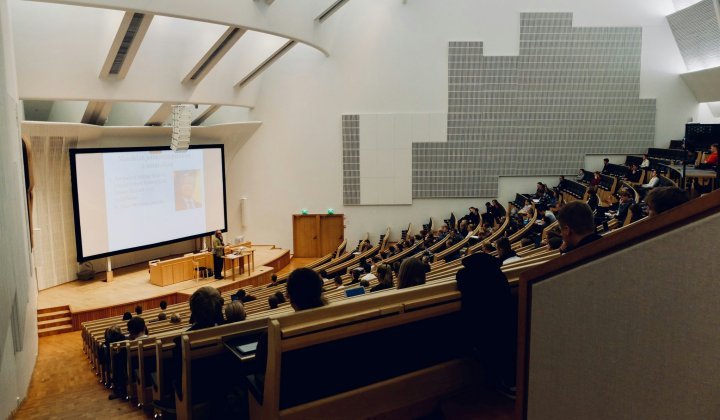The South African National Health Insurance Bill (NHI), which aims to provide universal access to quality healthcare services in South Africa, was signed into law by President Cyril Ramaphosa in May. This new legislation will establish a government-run fund to buy healthcare products for the population in an effort to address healthcare inequality and to deliver better and more patient-focused health outcomes.
GIBS, in collaboration with Sasol and SuperLead Advisory, hosted a panel of healthcare professionals from both the public and private sector to discuss the potential impact of the NHI.
Healthcare sector reform
Deputy director general of the National Department of Health Dr Percy Mahlati explained to the forum that healthcare sector reform needed to examine how infrastructure, human capacity and equipment was funded. “We have a healthcare system in need of reform, and our major challenge is how our system is structured.”
Dr Mahlati said the reality is that many South Africans seek care from both the public and private health systems, and no mechanism currently existed which allowed for formal collaboration between the two.
“Our healthcare system is not where it should be. We have two parallel streams, and we aren’t headed towards a sustainable future,” Dr Maanda Tshifularo, the director of the Centre for Leadership and Dialogue at GIBS and CEO of SuperLead Advisory, said.
Affordability of the NHI
Head of regulatory and policy Affairs at Discovery Health, Professor Roseanne Harris, explained that the central tenet of the NHI is for the government to become the single purchaser of healthcare, a notion which she said is “unique globally.”
As the Bill currently stands, it aims to provide healthcare for as many people as possible, funded through money raised from additional taxes, which would substitute private medical scheme contributions.
A decade-old Department of Health calculation placed the cost of implementing the NHI at R200 billion a year. With South Africa’s narrow tax base, Professor Harris said, “it would not be feasible to raise the money all in one go. The risk would have to be carefully managed.”
Partnership, collaboration and Covid learnings
The CEO of the Nelson Mandela Children’s Hospital, Dr Nonkululeko Boikhutso, called for a multisector approach to healthcare to address the underlying problems of poverty and malnourishment, especially among children. The maladministration of resources had to be acknowledged, she added, to address issues of leadership and governance within the sector.




